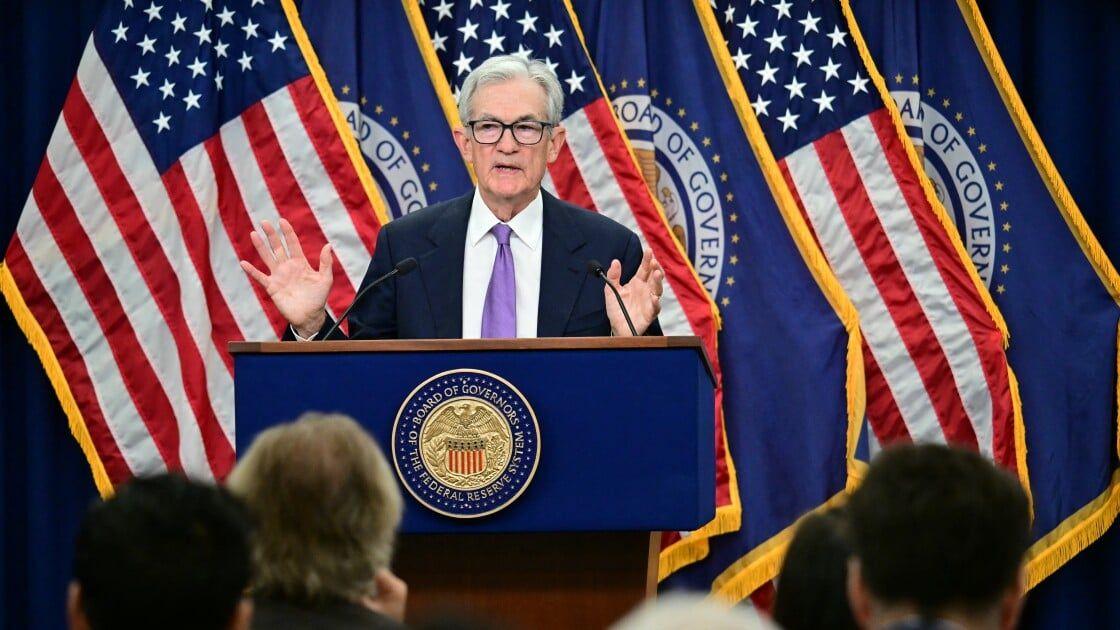Fed Vice Chair Jefferson: AI Accelerates Investor Reactions to Central Bank Communications
3 Sources
3 Sources
[1]
Fed's Jefferson says AI is speeding investors' reactions to central bankers' messages
(Reuters) - Artificial intelligence is speeding the rate at which investors react to specific sentences in central bankers' speeches and in statements describing their policy actions, Federal Reserve Vice Chair Philip Jefferson said on Friday, but it's unclear whether that increased speed is boosting or hindering the effective transmission of monetary policy. "For now, I do not think artificial intelligence is changing the way policymakers communicate, but research shows that it has affected how quickly information about policy is incorporated into asset prices," Jefferson said in prepared remarks to a conference at the San Francisco Fed that did not touch on his outlook for monetary policy or the U.S. economy. Further research is needed, he said, to determine whether the faster speed is allowing monetary policy to get transmitted faster through the economy, or, as some worry, that it "may provide an incentive for investors to value speed over accuracy, and may reduce the long-run informativeness of asset prices, which could hurt the transmission of monetary policy." In any event, Jefferson said, research makes it clear that it's not just investors but also households that pay attention and respond to monetary policy pronouncements. Policymakers, he said, "should communicate as clearly as possible to avoid increasing uncertainty."
[2]
Fed's Jefferson says AI is speeding investors' reactions to central bankers' messages
Feb 21 (Reuters) - Artificial intelligence is speeding the rate at which investors react to specific sentences in central bankers' speeches and in statements describing their policy actions, Federal Reserve Vice Chair Philip Jefferson said on Friday, but it's unclear whether that increased speed is boosting or hindering the effective transmission of monetary policy. "For now, I do not think artificial intelligence is changing the way policymakers communicate, but research shows that it has affected how quickly information about policy is incorporated into asset prices," Jefferson said in prepared remarks to a conference at the San Francisco Fed that did not touch on his outlook for monetary policy or the U.S. economy. Further research is needed, he said, to determine whether the faster speed is allowing monetary policy to get transmitted faster through the economy, or, as some worry, that it "may provide an incentive for investors to value speed over accuracy, and may reduce the long-run informativeness of asset prices, which could hurt the transmission of monetary policy." In any event, Jefferson said, research makes it clear that it's not just investors but also households that pay attention and respond to monetary policy pronouncements. Policymakers, he said, "should communicate as clearly as possible to avoid increasing uncertainty." Reporting by Ann Saphir; Editing by Paul Simao Our Standards: The Thomson Reuters Trust Principles., opens new tab Suggested Topics:Artificial Intelligence
[3]
Fed's Jefferson Says AI Speeds Impact of Policy on Asset Prices
Federal Reserve Vice Chair Philip Jefferson said artificial intelligence tools may help with the transmission of monetary policy, but cautioned about the limits of the technology. Jefferson said research suggests the automated analysis of the Fed's communication, along with automated trading, had increased how quickly information is incorporated into asset prices.
Share
Share
Copy Link
Federal Reserve Vice Chair Philip Jefferson discusses the impact of AI on investor reactions to central bank communications, highlighting both potential benefits and concerns for monetary policy transmission.

AI's Impact on Investor Reactions to Central Bank Communications
Federal Reserve Vice Chair Philip Jefferson has highlighted the growing influence of artificial intelligence (AI) on how investors respond to central bank communications. Speaking at a conference at the San Francisco Fed, Jefferson noted that AI is accelerating the speed at which investors react to specific sentences in central bankers' speeches and policy statements
1
.Rapid Incorporation of Information into Asset Prices
Jefferson emphasized that while AI is not currently changing how policymakers communicate, research indicates it has significantly affected the speed at which policy information is incorporated into asset prices
2
. This rapid processing of information by AI tools, coupled with automated trading systems, has led to faster market reactions to central bank announcements.Potential Benefits and Concerns
The Fed Vice Chair pointed out that this increased speed of information processing could have both positive and negative implications for monetary policy transmission:
- Potential benefit: Faster transmission of monetary policy through the economy.
- Potential concern: Investors may prioritize speed over accuracy, potentially reducing the long-term informativeness of asset prices
1
.
Jefferson stressed the need for further research to determine whether the accelerated reaction times are enhancing or hindering the effective transmission of monetary policy.
Broader Impact on Policy Communication
While the focus has been on investor reactions, Jefferson also noted that research shows households pay attention and respond to monetary policy announcements. This broader impact underscores the importance of clear communication from policymakers to avoid increasing uncertainty
2
.Related Stories
Cautionary Note on AI's Limitations
Despite acknowledging the potential benefits of AI in policy transmission, Jefferson cautioned about the technology's limitations. He emphasized the need for a balanced approach in leveraging AI tools while being aware of their constraints
3
.Implications for Future Monetary Policy
The insights shared by Jefferson highlight the evolving landscape of monetary policy in the age of AI. As central banks navigate this new terrain, they must consider how to effectively communicate their policies while accounting for the rapid, AI-driven market reactions. This development may lead to adjustments in communication strategies and potentially influence the timing and delivery of policy announcements in the future.
References
Summarized by
Navi
[1]
Related Stories
AI Simulation Reveals Political Pressure's Impact on Federal Reserve Decision-Making
11 Sept 2025•Science and Research

Fed Chair Powell Distinguishes AI Boom from Dot-Com Bubble as Tech Giants Pour Trillions into Infrastructure
29 Oct 2025•Business and Economy

Fed Governor Barr Outlines Two AI Economic Transformation Scenarios at Singapore FinTech Festival
12 Nov 2025•Business and Economy

Recent Highlights
1
ByteDance's Seedance 2.0 AI video generator triggers copyright infringement battle with Hollywood
Policy and Regulation

2
Demis Hassabis predicts AGI in 5-8 years, sees new golden era transforming medicine and science
Technology

3
Nvidia and Meta forge massive chip deal as computing power demands reshape AI infrastructure
Technology





